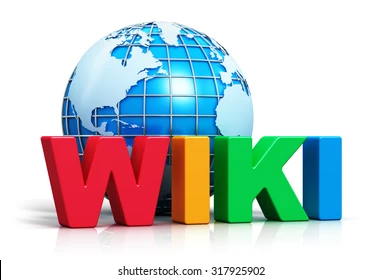
The World of Wiki Writers: Crafting Knowledge through Collaboration
Introduction
In the vast realm of the internet, where information flows like a ceaseless stream, the role of wiki writers stands out as a crucial force shaping our understanding of diverse subjects. These unsung heroes, often working collaboratively on platforms like Wikipedia, contribute to the creation and dissemination of knowledge that spans a multitude of topics. This article delves into the world of wiki writers, exploring their motivations, challenges, and the impact they have on the digital landscape.
The Rise of Wiki Culture
A Brief History
Wiki writing is deeply rooted in the concept of wikis, which are websites that allow collaborative editing of content by multiple users. The term “wiki” is derived from the Hawaiian word for “quick.” The first wiki, WikiWikiWeb, was created by Ward Cunningham in 1995, and it laid the foundation for a new era of collaborative content creation.
Wikipedia: The Pinnacle of Wiki Writing
Wikipedia, launched in 2001, quickly became the epitome of wiki culture. With articles on virtually every topic imaginable, Wikipedia transformed into a vast repository of human knowledge. Wiki writers, comprising volunteers from around the world, have played a pivotal role in maintaining and expanding this digital encyclopedia.
The Motivation Behind Wiki Writing
Passion for Knowledge
At the core of every wiki writer’s motivation is a genuine passion for knowledge. These individuals dedicate their time and expertise to contribute to a shared pool of information that benefits users globally. The desire to make accurate and reliable information accessible drives them to research, write, and edit articles.
Community Spirit
Wiki writing is inherently communal. Contributors engage in discussions, share insights, and collaborate on articles. This sense of community fosters a spirit of collective achievement, where individuals work together to enhance the quality and depth of content available on wikis.
Altruism in Action
Unlike many online endeavors, wiki writing is not driven by personal gain or recognition. Wiki writers often contribute selflessly, driven by a sense of altruism and a belief in the importance of freely accessible information. The satisfaction of knowing they have contributed to the collective knowledge of humanity is reward enough for many wiki writers.
The Challenges Faced by Wiki Writers
Vandalism and Edit Wars
One of the significant challenges faced by wiki writers is the persistent threat of vandalism and edit wars. Vandalism involves the deliberate addition of false or misleading information, while edit wars occur when contributors disagree on changes to an article. Navigating these challenges requires vigilance and a commitment to upholding the standards of accuracy and neutrality.
Verifiability and Credibility
Maintaining the verifiability and credibility of information is a constant battle for wiki writers. Ensuring that sources are reliable, up-to-date, and unbiased requires thorough research and fact-checking. Striking a balance between inclusivity and reliability is an ongoing challenge, especially in controversial or rapidly evolving topics.
Burnout and Sustainability
The voluntary nature of wiki writing means that contributors may face burnout due to the demands of maintaining high-quality content. The sustainability of wiki culture relies on continuously attracting new contributors while retaining experienced writers. Striking this balance is crucial for the long-term viability of collaborative knowledge platforms.
The Impact of Wiki Writing on Knowledge Dissemination
Democratization of Information
Wiki writing has democratized the process of creating and disseminating information. It allows individuals from diverse backgrounds and expertise levels to contribute, breaking down traditional barriers to knowledge production. This inclusivity ensures a broader representation of perspectives and a more comprehensive understanding of various subjects.
Real-time Updates and Accessibility
The collaborative nature of wikis enables real-time updates to information. Articles can be revised and expanded as new developments occur, providing users with the most current and relevant content. This real-time accessibility sets wiki writing apart from traditional encyclopedias and printed reference materials.
Global Collaboration and Cultural Exchange
Wiki writing fosters global collaboration, allowing contributors from different parts of the world to share their expertise and insights. This cultural exchange enriches the content with diverse perspectives, ensuring a more holistic representation of knowledge. It also promotes a sense of shared global responsibility for the accuracy and completeness of information.
Tools and Techniques of Wiki Writing
Wiki Markup Language
Wiki writers employ a specialized markup language to format and structure their contributions. This language, often unique to each wiki platform, allows users to add headings, links, citations, and other elements to their articles. Mastery of these markup languages is a fundamental skill for effective wiki writing.
Collaborative Editing
The collaborative editing feature is the heartbeat of wiki platforms. Multiple users can edit and contribute to an article simultaneously, enabling real-time collaboration. This feature promotes a dynamic and iterative approach to content creation, ensuring that articles remain relevant and accurate.
Talk Pages and Discussion Forums
Communication is vital in wiki writing. Talk pages and discussion forums within wiki platforms serve as spaces for contributors to discuss changes, seek clarification, and resolve disputes. These channels facilitate open dialogue and contribute to the overall quality of the content.
The Future of Wiki Writing
AI Integration
As technology advances, the integration of artificial intelligence (AI) in wiki writing is becoming more prominent. AI tools can assist in tasks like fact-checking, identifying potential vandalism, and even generating draft content. While AI can enhance efficiency, maintaining a balance to preserve the human touch in content creation remains a critical consideration.
Education and Outreach
Efforts to educate and engage new wiki writers are essential for the sustainability of collaborative knowledge platforms. Outreach programs, tutorials, and mentorship initiatives can encourage a diverse range of contributors to participate in wiki writing, ensuring the continued growth and relevance of these platforms.
Evolving Platforms and Standards
Wiki platforms will likely continue to evolve, introducing new features and standards. The challenge lies in adapting to these changes while preserving the core principles of accuracy, neutrality, and accessibility. Wiki writers must remain agile and open to innovation to navigate the dynamic landscape of collaborative knowledge creation.
Conclusion
Wiki writers are the architects of a digital landscape where knowledge knows no bounds. Motivated by a passion for learning and a commitment to the democratization of information, these individuals contribute tirelessly to the collective wisdom of humanity. Despite facing challenges, wiki writing remains a testament to the power of collaboration, fostering a global community dedicated to the pursuit of knowledge. As technology and society evolve, the role of wiki writers continues to be pivotal, shaping the way we access and understand the vast tapestry of human knowledge.




